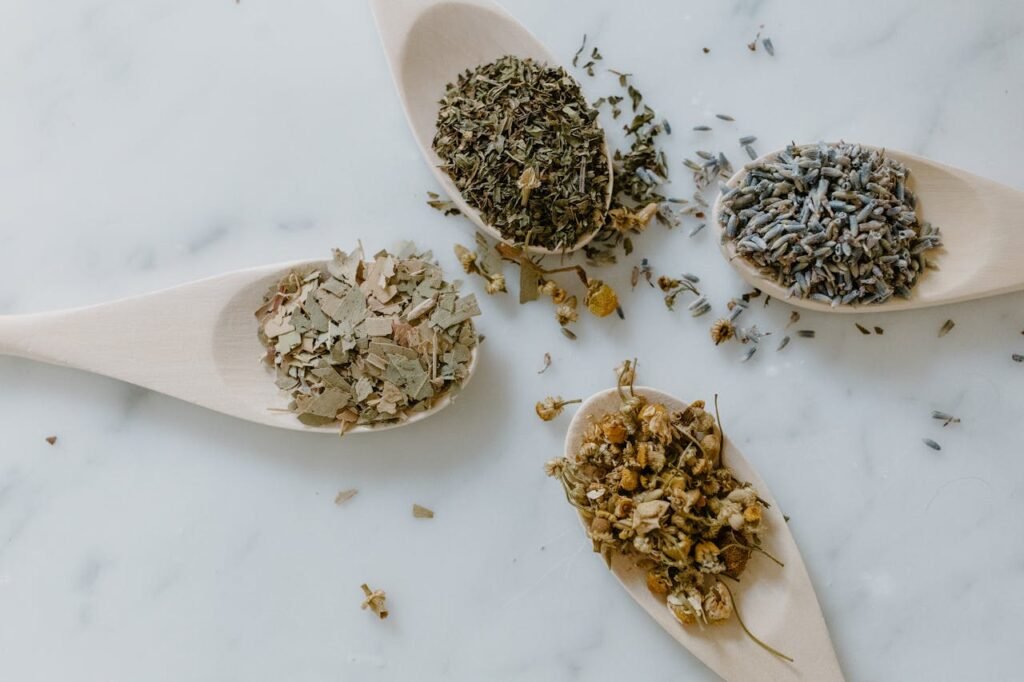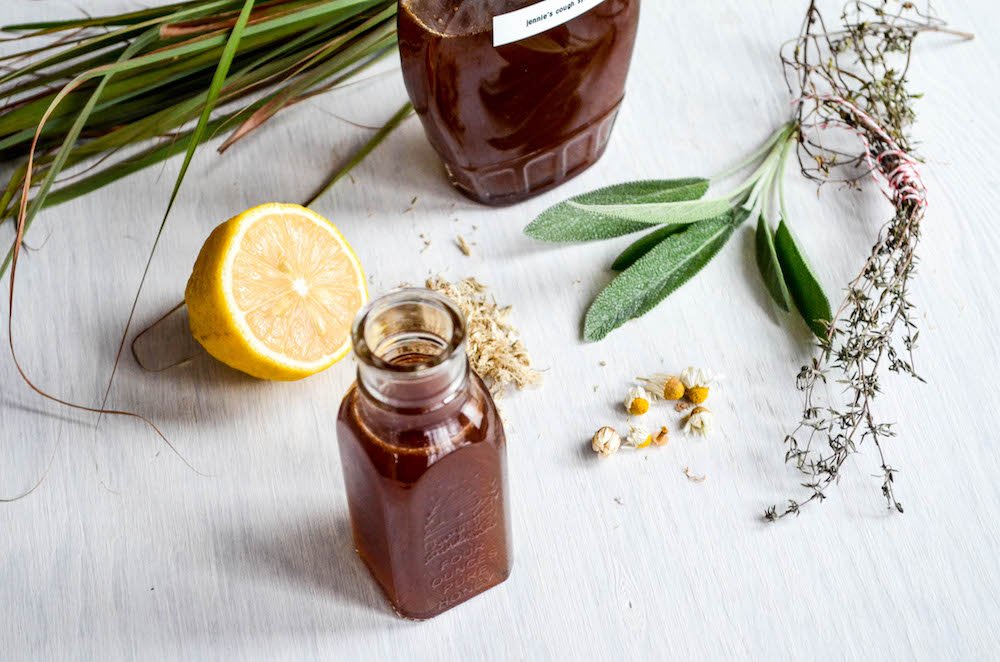Coughing is one of the most uncomfortable symptoms of a cold or flu. It can be relentless, disrupting your sleep and making daily activities difficult. While over-the-counter cough syrups can provide relief, many people are turning to natural alternatives that are just as effective without the added chemicals. A homemade herbal cough syrup can soothe your throat, calm your cough, and even help you recover faster by harnessing the healing properties of herbs and natural ingredients.

Homemade cough syrups are easy to make and can be customized based on the herbs and ingredients you have available. They often feature a blend of herbs that work together to suppress coughing, loosen mucus, and reduce inflammation. Ingredients like honey, ginger, and thyme are commonly used for their antibacterial and soothing properties, while herbs like marshmallow root and licorice work to coat and protect the throat.
In this guide, we’ll walk you through the process of creating your own homemade herbal cough syrup. Not only is it a natural solution for relieving a persistent cough, but it’s also a cost-effective and safe remedy that you can make right in your kitchen.
Step 1: Gather Your Ingredients
Before you begin making your herbal cough syrup, it’s important to gather the right ingredients. Each herb and ingredient serves a unique purpose, offering a range of benefits that will work together to ease your cough and boost your immune system.
Common Ingredients for Herbal Cough Syrups:
- Honey: A natural cough suppressant and antibacterial agent. Honey coats the throat, reducing irritation and calming the urge to cough.
- Ginger: Known for its anti-inflammatory properties, ginger helps soothe sore throats and supports respiratory health.
- Thyme: Contains antimicrobial compounds that help fight respiratory infections and relax the muscles in the respiratory tract.
- Marshmallow Root: A demulcent herb, meaning it coats and soothes irritated throat tissue.
- Licorice Root: A powerful herb that works as an expectorant to loosen mucus and reduce coughing.
You can find these herbs at health food stores, herbal shops, or online. Opt for organic, high-quality ingredients to ensure you’re getting the most potent benefits.
Step 2: Create an Herbal Decoction
A decoction is a method of extracting the beneficial compounds from herbs by simmering them in water for an extended period. This allows the herbs to release their healing properties into the liquid, forming the base of your cough syrup.
How to Make an Herbal Decoction:
- Choose Your Herbs: Select 2-3 herbs from the list above based on your needs. For example, you might choose ginger, thyme, and marshmallow root for a soothing and immune-boosting syrup.
- Prepare the Herbs: Use 1-2 tablespoons of dried herbs or a small handful of fresh herbs for every cup of water.
- Simmer the Herbs: Place the herbs in a saucepan and cover them with water. Bring the water to a boil, then reduce the heat and let it simmer for 20-30 minutes. This allows the herbs to release their medicinal properties.
- Strain the Decoction: Once the herbs have simmered, strain the liquid through a fine mesh strainer or cheesecloth, discarding the solid herbs.
The herbal decoction is now ready to be used as the foundation of your cough syrup.
Step 3: Add Honey for Sweetness and Soothing Power
Honey is a key ingredient in homemade cough syrups, not just because it adds sweetness but also for its medicinal properties. Honey coats the throat, providing immediate relief from coughing and irritation. It also has antibacterial and antiviral properties, making it a powerful ally in fighting infections.
How to Add Honey to Your Herbal Syrup:
- Measure the Honey: For every cup of herbal decoction, add 1/2 to 1 cup of raw honey. The amount depends on your taste preferences and the thickness you desire for your syrup.
- Combine the Honey and Decoction: Gently warm the herbal decoction if it has cooled, but do not boil it. Stir in the honey until it is fully dissolved into the liquid.
- Adjust the Consistency: If you want a thicker syrup, you can add more honey. For a thinner consistency, reduce the amount of honey or add a small amount of water.
Honey also acts as a preservative, helping your homemade cough syrup last longer.
Step 4: Bottle and Store Your Syrup
Once your herbal cough syrup is ready, you’ll want to store it properly to ensure it lasts and remains effective.
How to Store Homemade Cough Syrup:
- Use a Sterilized Bottle: Pour the finished syrup into a sterilized glass jar or bottle. Sterilization is key to preventing contamination and ensuring your syrup stays fresh.
- Label the Bottle: Write the date on the bottle, along with the herbs used. This will help you keep track of when you made the syrup and its intended use.
- Store in the Refrigerator: Keep your syrup in the refrigerator for up to 4 weeks. The cold temperature will help preserve the potency of the herbs and the honey.
Before using your cough syrup, give it a good shake to ensure the ingredients are well-mixed.
Step 5: How to Use Your Herbal Cough Syrup
Now that your cough syrup is ready, it’s time to start using it for relief. Homemade cough syrups are generally safe for adults and children over one year old (due to the honey content), but you should always consult with a healthcare provider if you’re unsure.

Dosage Recommendations:
- Adults: Take 1 tablespoon every 4-6 hours as needed to soothe coughs and sore throats.
- Children (over 1 year): Give 1 teaspoon every 4-6 hours.
For best results, take the syrup at the first sign of a cough or cold. The combination of herbs will work to soothe your symptoms and may even help shorten the duration of your illness.
Optional Additions for Enhanced Benefits:
- Lemon Juice: Adds a dose of vitamin C and further soothes the throat.
- Cinnamon: Acts as an additional anti-inflammatory and can improve the taste.
- Echinacea: Known for its immune-boosting properties, echinacea can help prevent colds and flu from progressing.
Feel free to experiment with different herbs and ingredients to create a syrup that works best for your body and symptoms.
Conclusion
Making a homemade herbal cough syrup is a simple and rewarding way to take control of your health using natural remedies. With ingredients like honey, ginger, thyme, and licorice root, you can create a powerful and soothing syrup that provides relief from even the most persistent coughs. By incorporating this DIY solution into your cold and flu season routine, you’ll have an effective, chemical-free remedy at your fingertips whenever illness strikes.
Not only is this a cost-effective option, but it’s also customizable to your needs, making it a valuable addition to your natural medicine cabinet. With the right herbs and a little time, you can make a cough syrup that supports your body’s healing process and brings comfort when you need it most.








